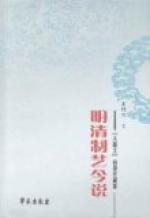|
This section contains 1,492 words (approx. 5 pages at 300 words per page) |

|
ZHIYI (538–597), third patriarch of the influential Tiantai school of Chinese Buddhism. This man is often regarded as having united Chinese Buddhism into a coherent whole by resolving doctrinal and practical strains that had plagued Buddhism virtually from the time of its introduction into China. His literary output was prodigious: about one thousand pages of the Taishō edition of the Chinese Buddhist canon are devoted to his extant works, a sum that would correspond to about nine thousand pages in unannotated English translation.
More important, however, than the sheer volume of his works is their synthesizing nature. Zhiyi was born at a time when Chinese Buddhism was beginning to move from unquestioning fidelity to Indian Mahāyāna doctrines and practices toward a more mature synthesis of Indic and Chinese religious values. Zhiyi was not the only man of his era to contribute to this synthesis: it is well...
|
This section contains 1,492 words (approx. 5 pages at 300 words per page) |

|


